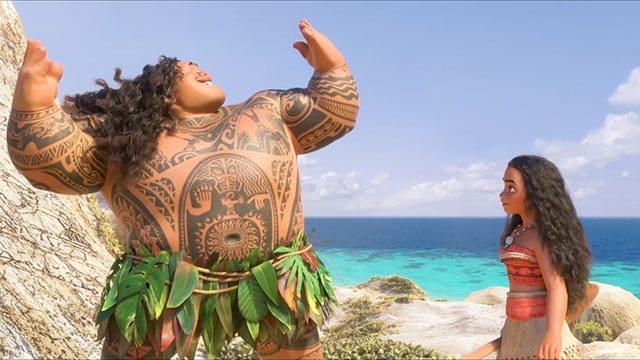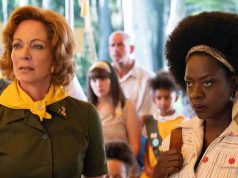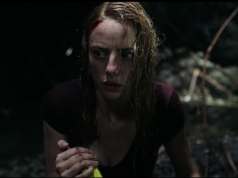
“Moana” is an animated Disney film about a headstrong girl in the middle of the ocean whose kingly, overprotective father fears the world beyond their realm and forbids her from engaging with it. But after singing a song about how she yearns for more, the girl disobeys her father, goes on a journey, and ends up saving the kingdom. And you’re never going to believe this, but it’s all from the directors of “The Little Mermaid”!
That’d be Ron Clements and John Musker. They also made “Aladdin,” “Hercules,” and “The Princess and the Frog,” and they’ve returned to apply the time-tested Disney formula to the myths of Polynesia. With a boastful sidekick, a “believe in yourself” message, and peppy songs (by Lin-Manuel Miranda, Mark Mancina, and Opetaia Foa’i), “Moana” fits comfortably in the mold of animated musicals without doing anything new. (Its most radical, though not unprecedented, deviations: Moana’s mother isn’t dead, and Moana doesn’t have a love interest.) But as these very filmmakers have demonstrated in the past, a Disney cartoon doesn’t need to be innovative to succeed; it just needs to hit the audience’s heart and funny bone. “Moana” does that well enough.
The title character (voiced by newcomer Auli’i Cravalho) lives on the small, peaceful island of Motunui, where her father (Temuera Morrison) is chief and she’s next in line. Moana’s people sustain themselves through fishing, always obeying the chief’s directive (helpfully repeated a few times) that “no one goes beyond the reef.” But Moana is drawn to the ocean and wants to reclaim her ancestors’ heritage as courageous navigators – which may be a necessity now that the reef’s supply of fish is dwindling.
Encouraged by her spiritualist grandmother (Rachel House), Moana learns that the ocean has chosen her to complete a mission that will restore the island’s vitality. That’s where Dwayne Johnson comes in. Typecast yet again as a hulking, beefy demigod, The Rock provides the voice of Maui, who swiped the Heart of Te Fiti (it’s a small medallion) centuries ago, inadvertently unleashing a creeping darkness that now threatens to overtake the island. Maui, whose sentient tattoos act as his conscience, has been living in exile, his superpowers revoked though his ego remains undiminished. (His amusingly vain introductory number is called “You’re Welcome.”) And really, except for that one error in judgment, he did do a lot for mankind, back in the day.
At this point, the movie switches from the Provincial Girl Seeks Greater Purpose template to the Mismatched Characters Are Forced to Travel Together template, as Moana pressures Maui to join her in returning the Heart of Te Fiti and restoring order. This, finally, is what the movie really came here to do. Everything else was just prologue; the film is ultimately uninterested in Moana’s relationship with her father. (The screenplay, of questionable structure, is credited to “Zootopia’s” Jared Bush, but at least eight other writers worked on it.) As Moana and Maui they traverse the open seas, they face a variety of exciting monsters and foes, including a giant crab (Jemaine Clement) attracted to shiny objects and an army of wee pirate creatures who wear coconuts for armor and take inspiration from “Mad Max: Fury Road.” These perilous adventures make for smooth, breezy fun, accompanied by the expected bantering, bickering, bonding, life lessons and hugging. Nearly 80 years after “Snow White,” the old Disney factory is still crankin’ ’em out better than anyone.
B (1 hr., 43 min.; )





